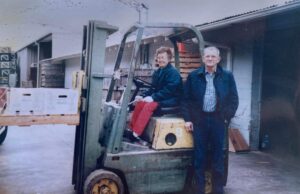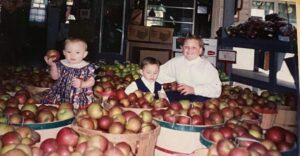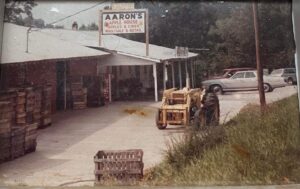Millen, GA
With more than 1.3 million acres of cotton planted every year in the state, Georgia is the second largest producer in the country. While this year’s yields will be better than expected, it’s not quite going to be the bumper crop growers saw in 2022.
“This is the first cotton that I’ve picked in the field where we’re standing and it looks good, but I honestly don’t think it’s as good as it looks,” says JD Newton, Jenkins County Farmer. “So, I think we’re going to be a couple of hundred pounds off of what it actually looks like it should be. Overall, for what it has been through, the crop’s going to be probably better than it probably should have been with what it went through. This field is not going to turn out what it did last year.”
That drop in production can be attributed to an uneven growing season that saw too much rain in the beginning and not enough to finish it off.
“Growing season was pretty tough. We couldn’t get in and spray a lot with this rain. We had these big rains that weren’t an inch here or two inches here, but were seven, five. Then we hit a dry spell in early August to middle August, we went through about two to three weeks dry, and we just didn’t develop a root system early on,” says Newton.
That weather has impacted the timing of harvest as well, with growers unable to get into the fields during October, despite putting a rush on defoliating their crop.
“We were definitely pushed back with all the rain and stuff we had earlier in the growing season. The crop got pushed back. I’m probably easily two weeks behind where I wanted to be, in fact, I can even see that probably when we defoliated this cotton that we might have been just a few days too early. As it opened up, it looked like some of those top bowls didn’t want to quite mature enough. So, we probably could have been as much as a week early, which would have pushed me back another week,” says Newton.
While the quantity might be a little off this year, the same cannot be said for the quality, as long as Mother Nature cooperates for the next few weeks.
“I think the quality is going to be great. This cotton hasn’t been rained on. It’s nice and white, it’s fluffy, no hard lock in at the bottom of the crop. I don’t see any reason why the quality would be down. If it rains for a day or just a couple of tenths and the sun comes right back out for another week, we won’t see much quality loss at all,” says Newton.
As for the priority this time of year, it’s getting this cotton out of the field a soon as possible to avoid anything unforeseen.
“We generally haul our own cotton to the gins. So, generally that comes a little later but if we can get it picked and in a roll, we’re not going to lose any quality. We’re not going to lose any yield to weather like that, and so, the main priority is just getting it in a roll.
By: Damon Jones






